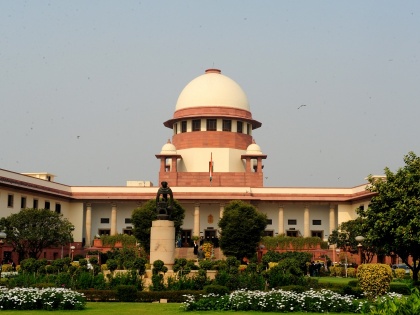2G Spectrum Case: Centre Moves Supreme Court Seeking Modification of 2012 Verdict
By Lokmat English Desk | Published: April 23, 2024 06:03 PM2024-04-23T18:03:25+5:302024-04-23T18:03:32+5:30
More than 12 years after it was delivered, the Centre has moved the Supreme Court seeking modification of its ...

2G Spectrum Case: Centre Moves Supreme Court Seeking Modification of 2012 Verdict
More than 12 years after it was delivered, the Centre has moved the Supreme Court seeking modification of its verdict in the 2G spectrum case which said the State was duty bound to adopt the auction route while transferring or alienating the country's natural resources.. The 2012 verdict had mandated the auction route for transferring or alienating natural resources, leading to the cancellation of 2G spectrum licenses issued during A Raja's tenure as the telecom minister. The Attorney General representing the Centre has filed an interim application before a bench, seeking an urgent listing for modification of the verdict. The Centre aims to grant 2G spectrum licenses in certain cases and hence seeks a revision of the previous ruling.
Advocate Prashant Bhushan, who appeared for NGO Centre for Public Interest Litigation which was one of the petitioners on whose plea the February 2012 verdict was delivered, opposed the application and said the issue has been well-settled by the apex court in its judgement that the auction is the only mode for granting licences for natural resources like spectrum, the radio frequencies allocated to the mobile phone industry for communication over the airwaves. "We will see, you please move an e-mail," the CJI told Venkataramani.
In its 2012 judgement, the apex court had said, "When it comes to alienation of scarce natural resources like spectrum etc, it is the burden of the State to ensure that a non-discriminatory method is adopted for distribution and alienation, which would necessarily result in protection of national/public interest”. The top court had said in its view, a duly publicised auction conducted fairly and impartially was perhaps the best method for discharging this burden. "In other words, while transferring or alienating the natural resources, the State is duty bound to adopt the method of auction by giving wide publicity so that all eligible persons can participate in the process," it had said.